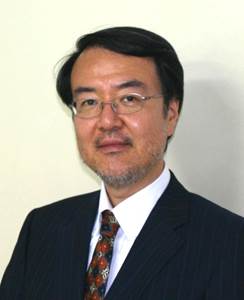A message from Prof. Nobuyoshi Yabuki
(May 28, 2008)
We would like to welcome applicants from foreign countries to our laboratory in the Division of Sustainable Energy and Environmental Engineering, Graduate School of Engineering, Osaka University . Our research field is in the interdisciplinary area between environmental design and informatics (information technology). Our research interests include, but not limited to, development of product models, Building Information Modeling (BIM), application of Virtual Reality (VR), Augmented Reality (AR), and Mixed Reality (MR) to civil, architectural, and environmental design, development and application of 4D CAD, Radio Frequency Identification (RFID) and sensor technologies for integrating cyber and real infrastructures to establish sustainable development, better quality of life, and secure and safe society.
Environmental Design Informatics is a relatively new academic area. In order to establish this area as a sustainable academic field, I think the following three items need to be established: basic science as its core, academic system, and journals. The basic core science to this area is mathematics, especially, discrete mathematics. You may add some parts of physics. The academic system is a foundation for linking wide variety of themes and topics such as space, environments, design, IT, formation of agreements,human and society relations, etc. Journals form an essential platform to publish academic new findings and contributions. We always have in mind the above three items in our research and educational activities.
In our laboratory, we study various projects related to environmental design, think of new, generalized hypotheses, mathematical models, methodologies, etc., and verify these new ideas by utilizing advanced information technologies and/or applying them to real projects. We often jointly conduct research with governmental agencies and companies, and we also collaborate with other laboratories, foreign universities and research institutes.
Prospective applicants are expected to have high level of proficiency in either English or Japanese. Masters' students have to do coursework in Japanese. Doctoral course students are not necessarily required to be fluent in Japanese, but are expected to understand some in order to live in Japan . Applicants should have hopefully high level of knowledge and skills in both/either environmental, architectural, or civil engineering design and/or informatics (IT).
Nobuyoshi Yabuki, Ph.D.
Professor
Division of Sustainable Energy and Environmental Engineering
Graduate School of Engineering
Osaka University |